10 Delectable Foods for Date Night Found in the Bible
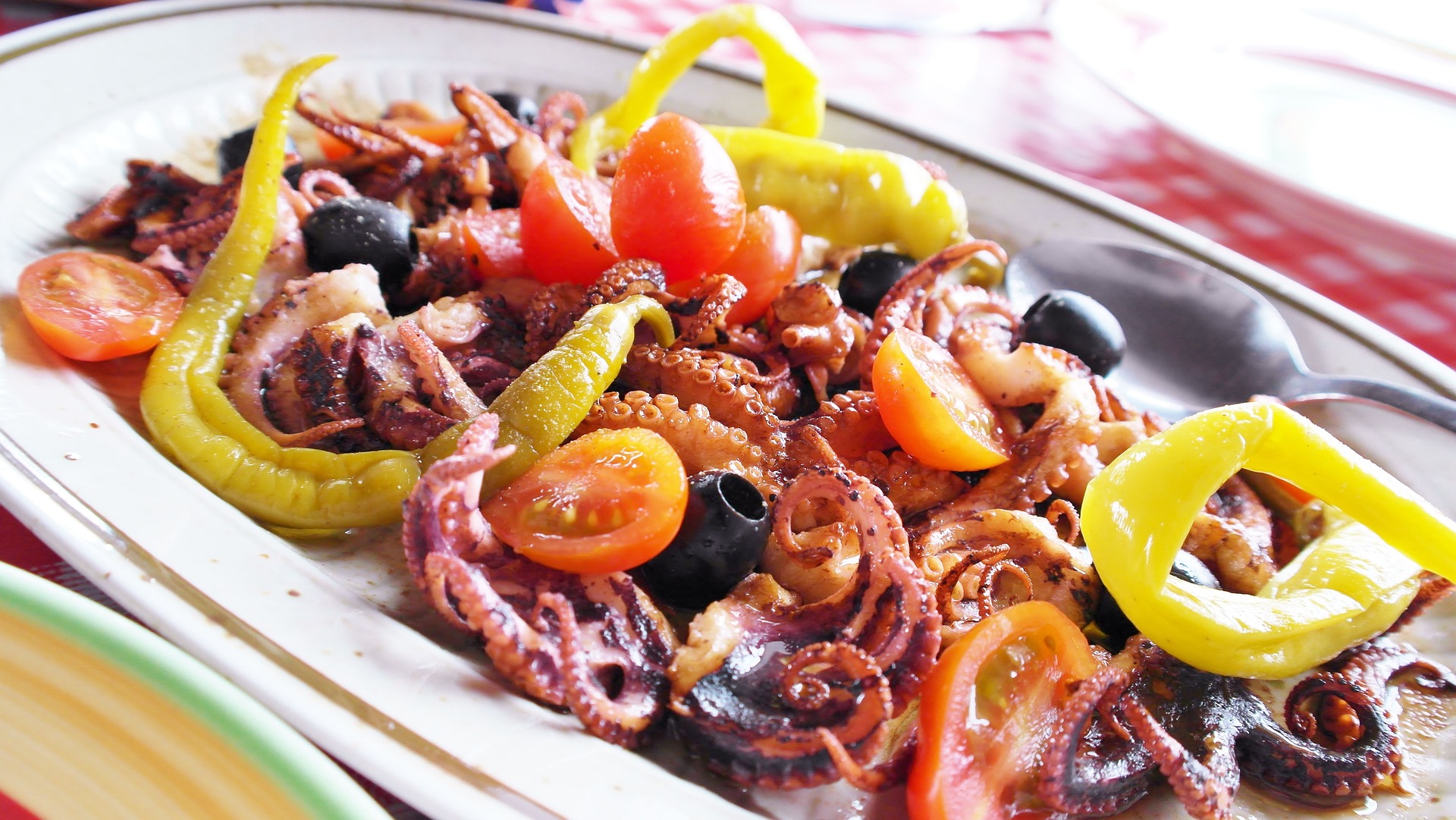
It seems kind of strange that someone would even associate foods from the Bible with planning a menu for a date night with your sweetheart.
No joke about it, the simple fact of the matter is that some of the most delicious foods that delight the palette come straight from the pages of Scripture.
And why not? Each and every ingredient is all natural, come without preservatives, and possess all the right flavors to keep you healthy, inspired, and coming back plate in hand for more.
The following are ten foods pulled straight from the pages of Scripture with corresponding references to their significance, and we even provide a recipe for you too!

1. Bread
“Take wheat and barley, beans and lentils, millet and spelt; put them in a storage jar and use them to make bread for yourself. You are to eat it during the 390 days you lie on your side. — Ezekiel 4:9
Bread was eaten at just about every meal, and is estimated to have provided from 50 to 70 percent of an ordinary person’s daily calories. The bread eaten until the end of the Israelite monarchy was mainly made from barley flour, which was an easier crop to grow than wheat. (from “Foods of the Bible” by Didi Gorman)
Recipe for Challah Bread with Poppy Seeds
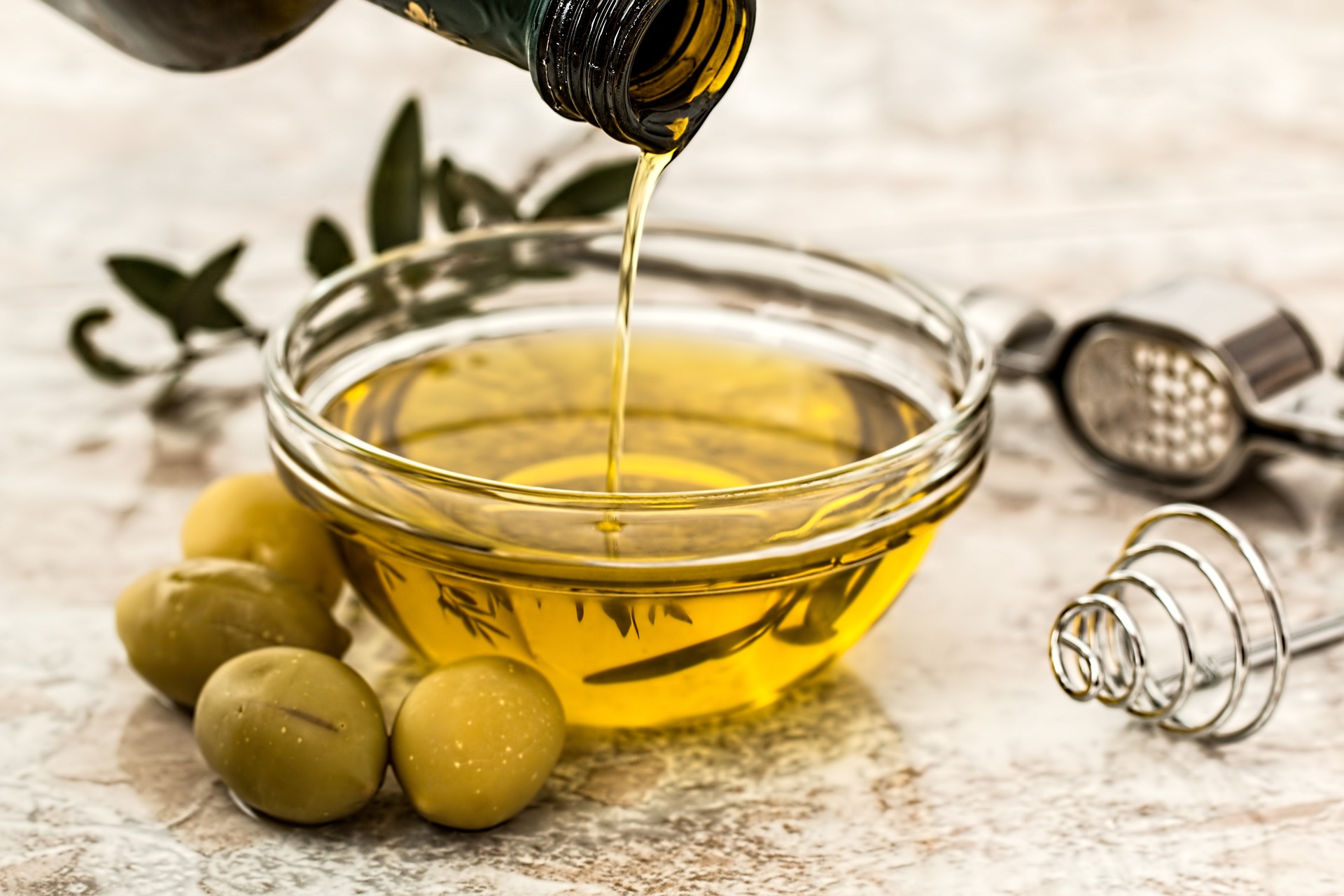
2. Olives and Olive Oil
If your grain offering is cooked in a pan, it is to be made of the finest flour and some olive oil. — Leviticus 2:7
Olives were grown exclusively for their oil, which was used not only for food and for cooking, but also for lighting, sacrificial offerings, ointment, and anointment for priestly or royal office. To this day, olive trees grow on hills and mountains throughout the country. Local olive oil can be found in virtually every household, and is used for various salads and cooked dishes. (from “Foods of the Bible” by Didi Gorman)
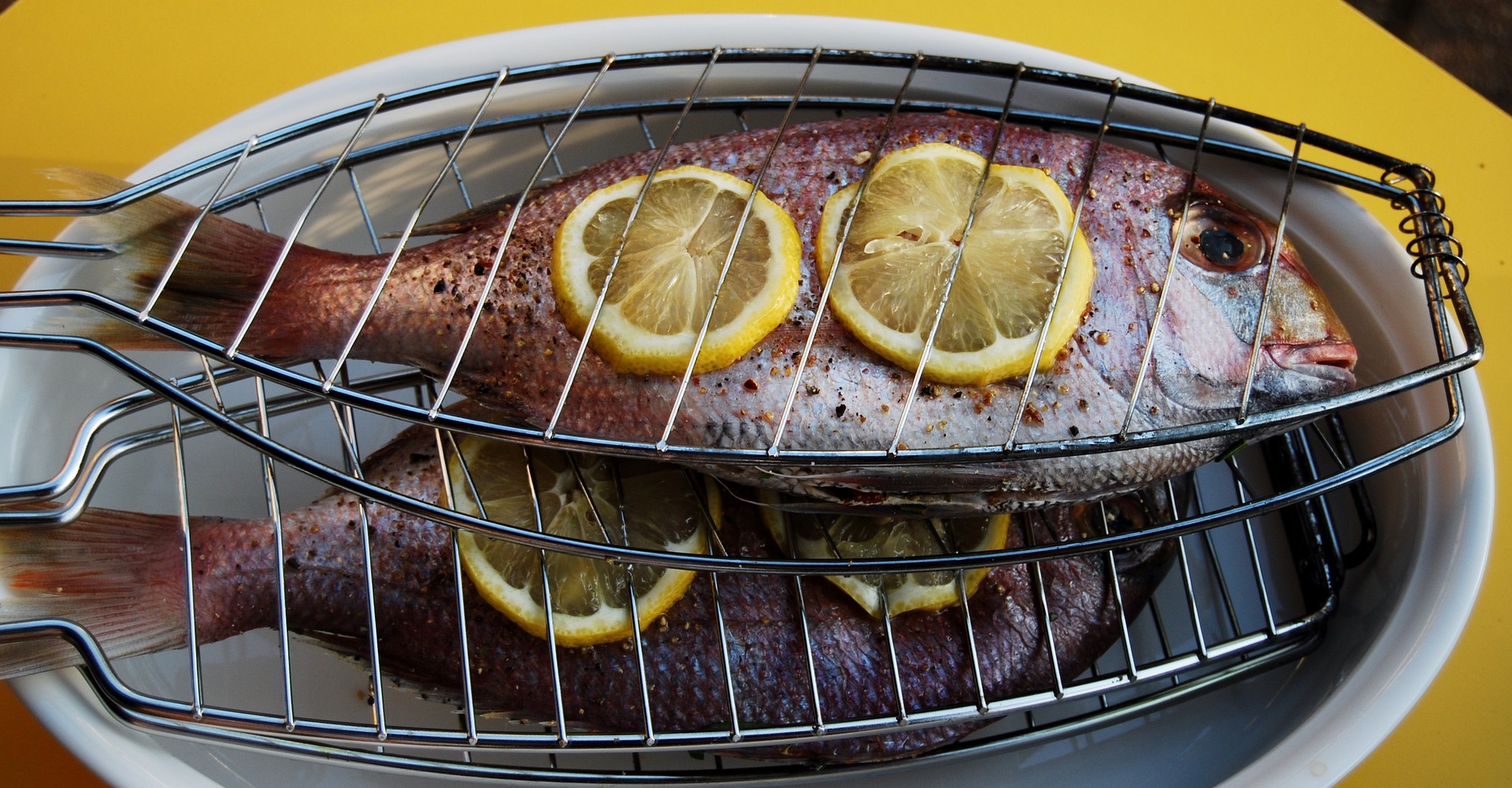
3. Fish
… and the disciples picked up twelve basketfuls of broken pieces of bread and fish. — Mark 6:43
In the north of the country, around the Sea of Galilee and the Jordan River, small scale fishing was part of the agrarian economy. Evidence to this is the story of Jesus’s disciples, several of whom had been fishermen in the Sea of Galilee at the time they met Jesus. (from “Foods of the Bible” by Didi Gorman)
Recipe for Grilled Fish in Grape Leaves
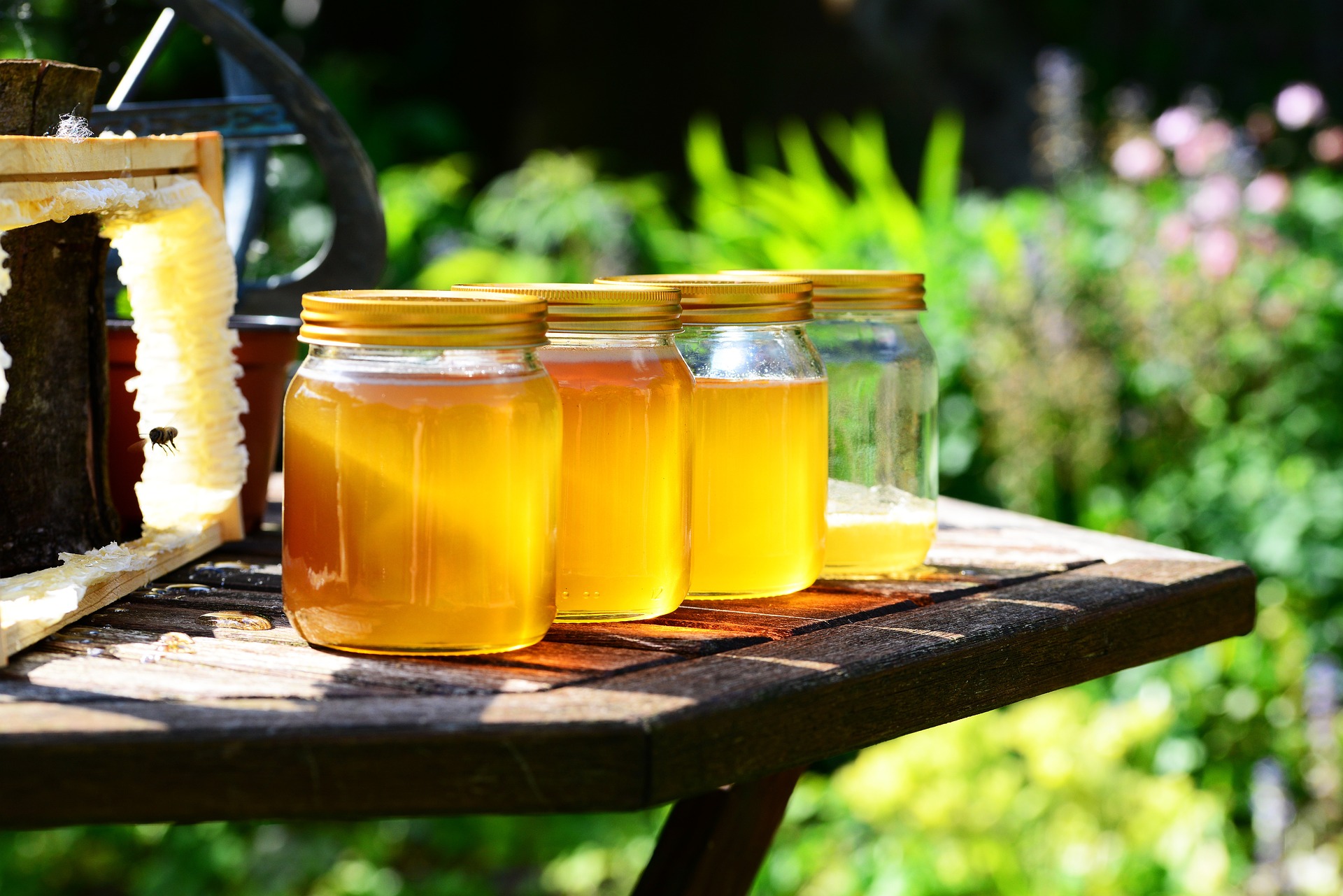
4. Honey
Eat honey, my son, for it is good; honey from the comb is sweet to your taste. — Proverbs 24:13
In the Bible, honey is mentioned 61 times and its meaning is often associated with prosperity and abundance. In the third chapter of Exodus, when God called Moses to lead the slaves out of Egypt, he called him to lead them to a land that will flow with milk and honey. (From “What is the Meaning of Honey in the Bible” by Fort Hill United Methodist Church)
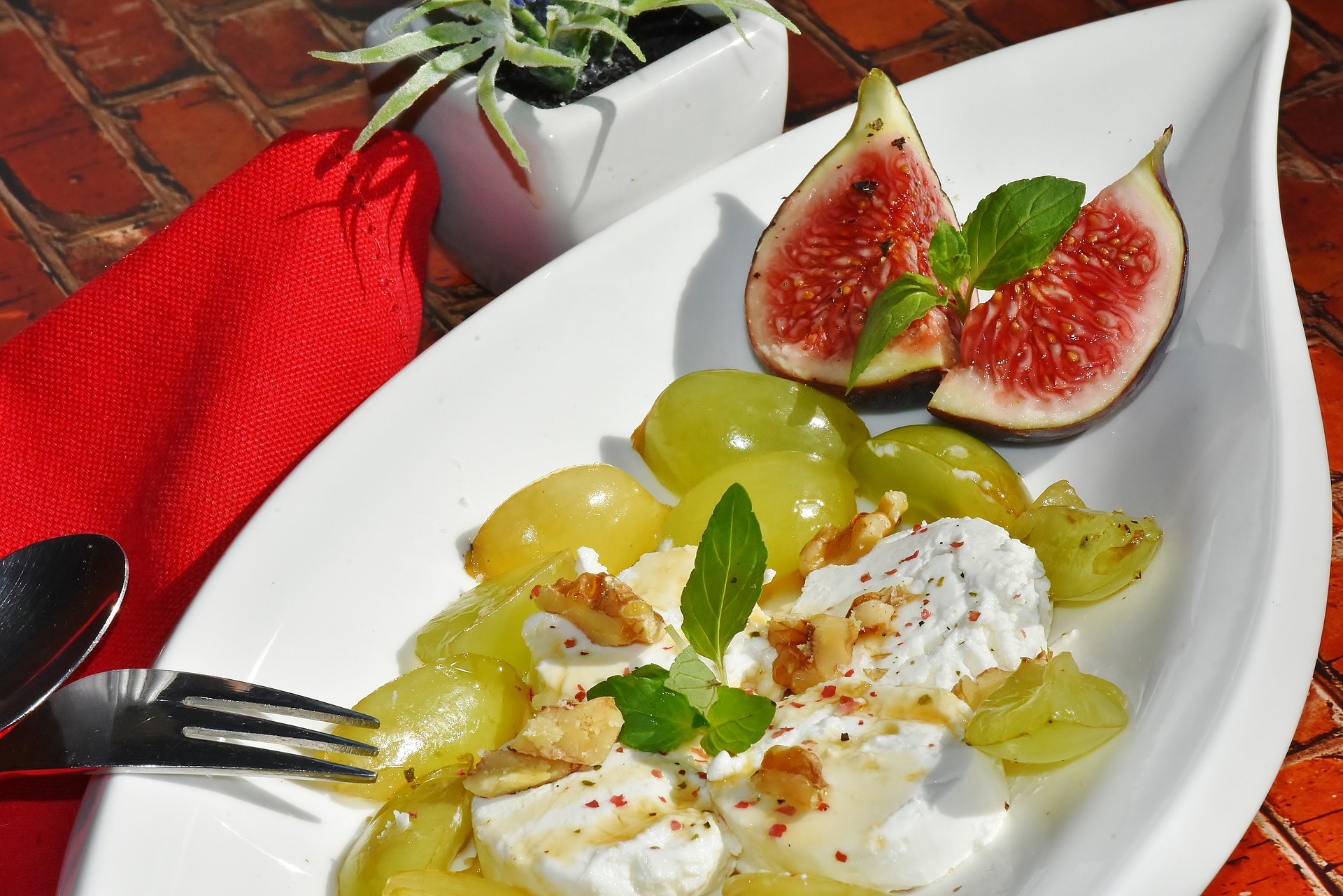
5.Milk
You will have plenty of goats’ milk to feed your family and to nourish your female servants. — Proverbs 27:27
Goats, and to a lesser extent, sheep, provided milk for part of the year. Given the weather conditions however, fresh milk could not be stored for a long time, and had to be preserved. Typically, milk was stored in skin containers, where it quickly curdled and turned into a type of yogurt called Lebben.Chunkier than yogurt and less sour, this delicacy is a very common element in Israeli diet to this day, and can be found at every grocery store across the country. (from “Foods of the Bible” by Didi Gorman)

6.Lamb
“The angel of God said to him, ‘Take the meat and the unleavened bread, place them on this rock, and pour out the broth.’ And Gideon did so.” — Judges 6:20
The Israelites usually ate meat from domesticated goats and sheep. Goat’s meat was more common. For most people however, meat was eaten only a few times a year when animals were slaughtered for the major festivals, or at tribal meetings and celebrations. (from “Foods of the Bible” by Didi Gorman)
Recipe for Garlic Herb Crusted Roast Lamb

Herbs and Spices
7. Herbs and Spices
Then God said, “I give you every seed-bearing plant on the face of the whole earth and every tree that has fruit with seed in it. They will be yours for food. — Genesis 1:29
Food was flavored by plants and herbs most native to the region and either cultivated or gathered in the wild. Onions and garlic were used for seasoning as well as eaten as veggies. Herbs and spices included capers, coriander, cumin and black cumin, dill, dwarf chicory, hyssop, marjoram, mint, black mustard, saffron and thyme. (from “Foods of the Bible” by Didi Gorman)
Recipe for Honey Roasted Carrots with Cumin
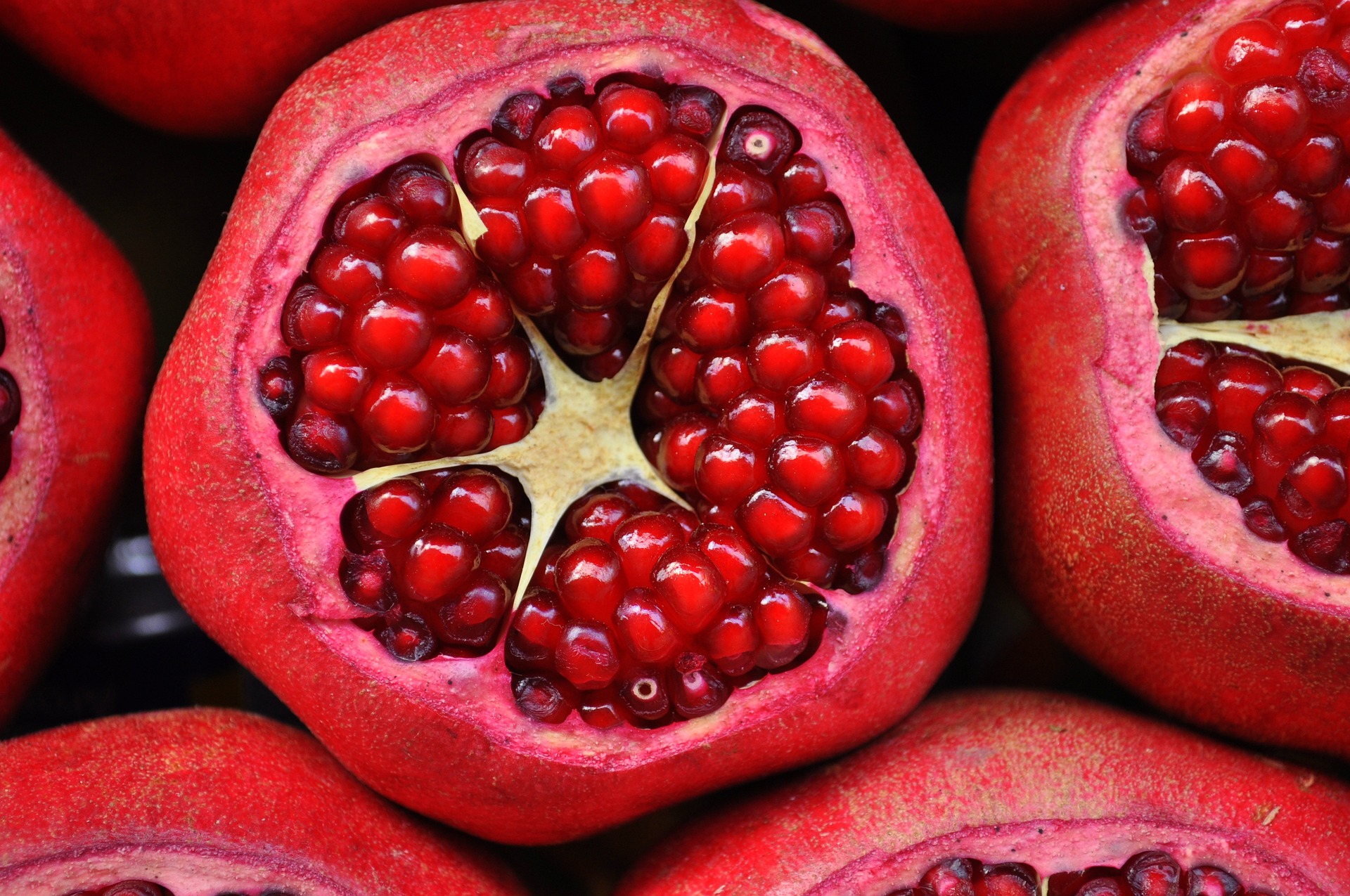
8. Fruit
“I went down to the grove of nut trees to look at the new growth in the valley, to see if the vines had budded or the pomegranates were in bloom.” — Song of Solomon 6:11
Fruit was an important source of food for the Israelites, particularly grapes, olives and figs. Grapes were grown mostly for wine, although some were eaten fresh at harvest time, or dried as raisins for storage. Other fruits that were eaten were the date, pomegranate and sycamore fig. (from “Foods of the Bible” by Didi Gorman)
Recipes for Using Fresh Pomegranates
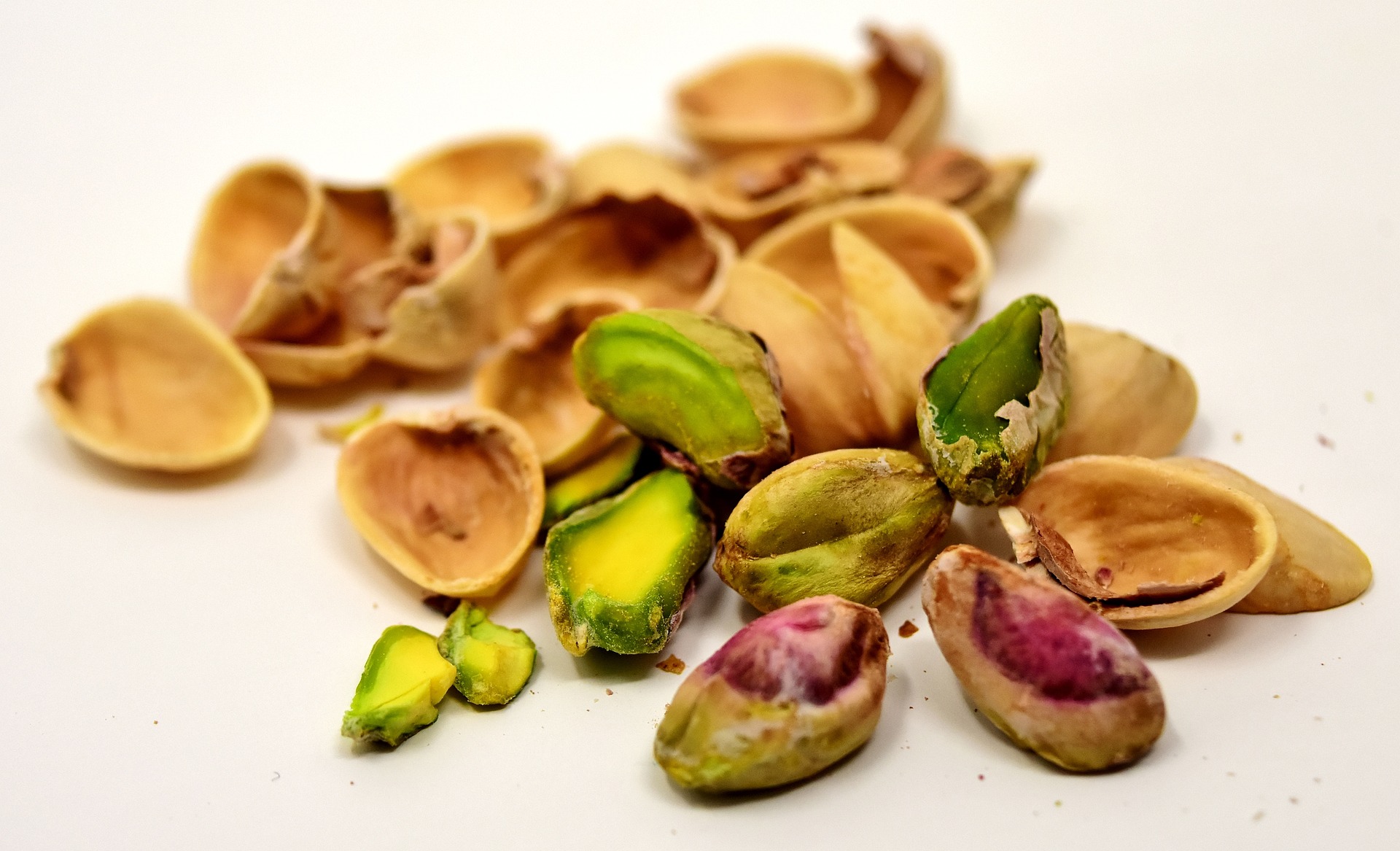
9. Nuts
Then their father Israel said to them, “If it must be, then do this: Put some of the best products of the land in your bags and take them down to the man as a gift —a little balm and a little honey, some spices and myrrh, some pistachio nuts and almonds. — Genesis 43:11
While the Bible includes passages that refer in broad terms to nuts, only two specific nuts are specifically mentioned within the text. Almonds are mentioned a total of six times throughout the Old Testament, with the first reference occurring in Genesis chapter 43, verse 11. Pistachios are mentioned in the same verse. (from “Are Nuts Mentioned in the Bible?” by Delighted Cooking)
Recipe for Fish with Pistachio Nuts
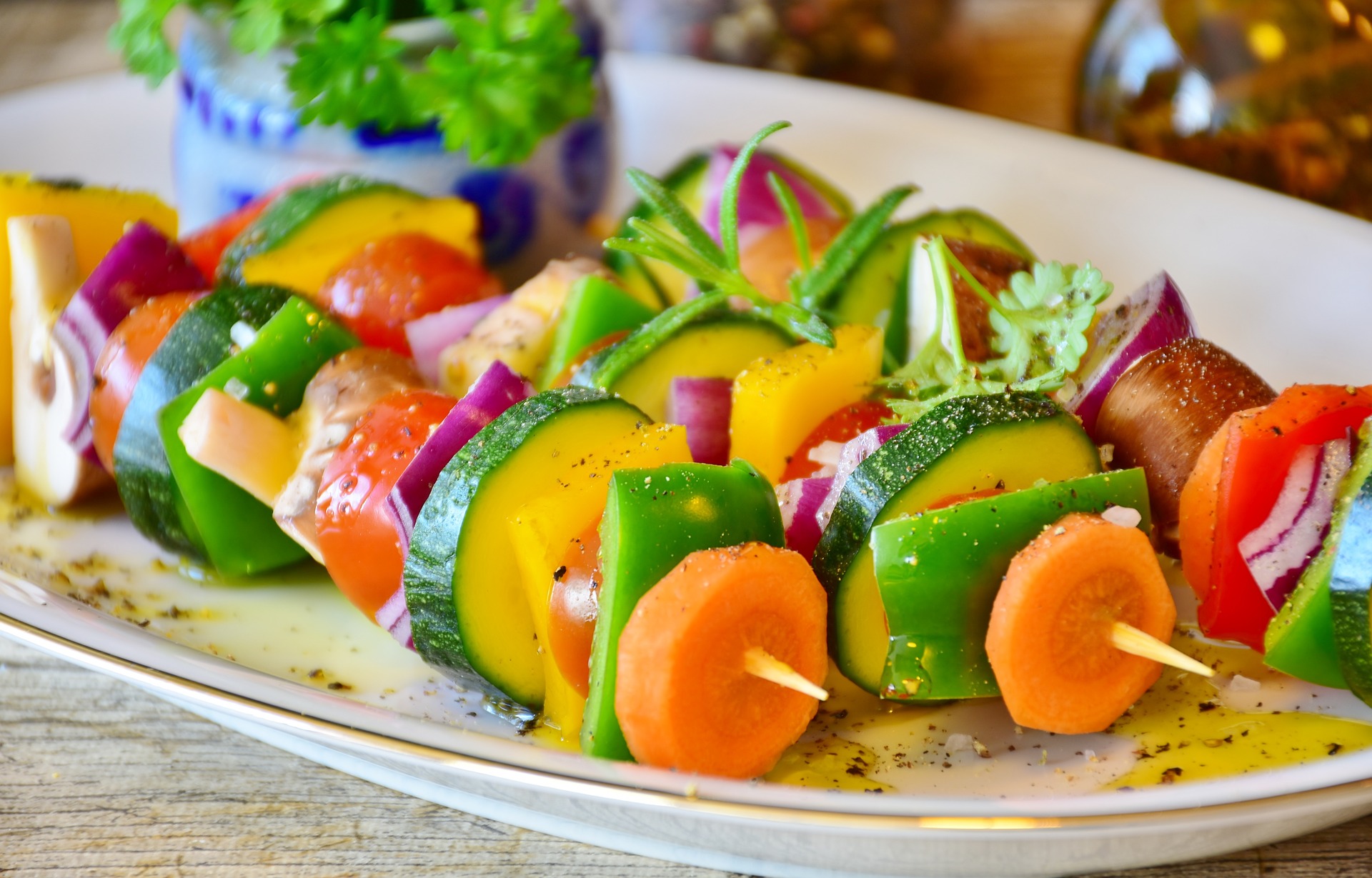
10. Vegetables
“Please test your servants for ten days: Give us nothing but vegetables to eat and water to drink.” — Daniel 1:12
Instead of eating the tasty dainties of the Babylonians, Daniel and his friends requested to live on a vegetarian diet. When it was time for them to be presented to the king, Nebuchadnezzar and all of the leaders were astounded to see that the four young Jewish friends were more fit and looked better than the other young men who ate the Babylonian fare. Often referred to as the Daniel diet or the Daniel fast, history and biblical text actually support that Daniel continued his vegetarian lifestyle throughout his entire life. (from “The Biblical Diet: Top Ten Bible Foods That Heal” by Dr. Josh Axe)






